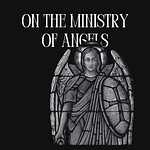Sunday sermon on the Gospel lesson from John 20:19-31 (April 27, 2025)
In the Name of the Father and the Son and the Holy Spirit, one God. Amen.
Christ is risen!
Today we remember the patron saint of all believers – doubting and believing disciple and apostle Thomas. This second Sunday of Pascha is sometimes called doubting Thomas Sunday, but I think that title sells him short and does him a disservice.
He was not the only doubting disciple, just like he was not the only one to become a believing one. He was a doubting and believing Thomas. It was exactly because he was believing that he had some doubts. He wanted to believe only the truth, so his doubt helped him find it.
Looking at Saint Thomas, we can make one simple conclusion – if we never have doubts, then we have never believed. I think many of us, if we had to give an honest answer, would say right now that we believe, we have faith in Jesus Christ. And maybe we’ll even be able to say what exactly this faith is made up of.
And that may be so. But how many of us would admit that we have some doubts about our faith, some serious doubts?
Again, if we have never doubted, if we have never struggled and wrestled with our faith, then we have never believed, at least not seriously. Most or all of us grew up with our parents or grandparents, or both, teaching us the Christian faith. They showed us the ropes – how to enter the church, how to venerate the icons, how to fold our hands when coming to the Chalice, how we celebrate various holy days, how to prepare meals for Christmas and Pascha, how to arrange that Paschal basket.
We learned as children, so our faith was child-like, and maybe sometimes childish. But no matter how believing the people who passed down to us the Orthodox faith, at one point we had to make it our own, to do things on our own, to grow, struggle, and doubt on our own. If we never did that, then we never grew up, then our faith remained childish.
Doubt, the one that forces us to search out the truth, is something that can take our faith from childish to mature.
Doubt is a natural part of our life. We doubt that our politicians are honest. We doubt that the weather forecast is accurate. We doubt that we’ll earn enough to retire. We doubt that the future will be bright (or that there even will be a future).
And yet, we keep voting for the politicians, we keep checking the forecast a week ahead, we retire when the time comes, and every time we wake up the future is still as distant and mysterious as it was yesterday.
Doubt is also a natural part of our spiritual life, of our faith. Thomas had his doubts. Others told him that Christ is risen, but he wanted to make sure of that on his own. He had a witness of the women, who came to the empty tomb and of the disciples, among whom the risen Lord appeared, but he also wanted to draw his own conclusions.
In other words, he was wrestling with his faith because he needed truth. We also wrestle with our faith for the sake of truth. I don’t think there is anyone here who does not want the truth. The problem with truth is that it is not always comfortable, so we avoid it. We tend to dismiss our doubts because we tell ourselves that we believe. In reality, we dismiss the doubts because we don’t want to struggle with the truth.
Yet, we become believers after we struggle with whatever is going on inside us.
As we continue to struggle and wrestle with our faith, let’s take a look at what we are aiming for, what exactly is the truth, what is our faith?
Once, Jesus asked His disciples a very direct question, “Who do you say that I am?”(Matthew 16:15). Who is Christ? The question is not what He has done for us or how nice He is, but Who is He?
To this question, the leader of the apostles, Saint Peter answered, “You are the Christ, the Son of the Living God” (Matthew 16:16). This is our faith, this is our confession, and this is our proclamation to the rest of the world – to acknowledge in the person of Jesus Christ the Son of God, the Savior of the world.
To this Jesus replied, “You are Peter, and on this rock I will build My Church” (Matthew 16:18). What the Lord meant was that He was building His Church upon the foundation of the confession that Peter just made. Anyone who makes the same confession, who believes that Jesus is our Savior and the Son of God, has the foundational faith and is part of Christ’s Church.
Now, Thomas, who said that he will believe that Christ is risen only after sticking his finger into the Lord’s wounds, having done so, he exclaimed, “My Lord and my God!” (John 20:28). This is the same confession of faith Peter had made earlier. Thomas’ struggles led him to the confession upon which the Church is built.
So, we can say that doubt is good and doubt is even necessary, without doubt we don’t really believe. If we doubt properly, we will be led to the truth. It’s not only that we will find it, but we will be guided to the truth. And what is truth? Or rather, Who is the Truth? The Truth is the One Who said, “I am the Way, and the Truth, and the Life. No one comes to the Father except through Me” (John 14:6). Jesus Christ, our Lord and Savior.
After Thomas confessed Jesus to be his Lord and his God, Christ told him that he got it easy, he believed because he saw Jesus. But, blessed are those who have not seen and yet have come to believe.
And this is basically us, hopefully. We believe, with doubts and all, but we believe, even though we have not seen Christ physically … but even that is not completely true.
I once saw a very sobering quote online. It said, “I screamed at God for the starving child, until I saw the starving child was God screaming at me.” We come face to face with Christ daily, in most unexpected ways.
Want to stick a finger into the wound of Christ? Then touch and treat the wound of anyone who is hurt. Christ accepted the suffering because He wanted to make all the suffering His. So now He co-suffers with us. Or rather, we co-suffer with Him. And He left His disciples, meaning us, to co-suffer with our brothers and sisters, each and every person that we encounter, as well as the rest of the world.
Blessed are those who have not seen and yet have come to believe. We can’t claim ignorance by insisting that we have not seen Christ. Not only that, we have many witnesses to the authenticity of the faith proclaimed and confessed before us, and among these witnesses are the Gospel accounts.
We heard John the Evangelist tell us today that Jesus did many signs in the presence of His disciples after the Resurrection, which are not written in the book, but whatever iswritten, is done so that we may believe that Jesus is the Christ, the Son of God, and that through believing we may have life in His Name (John 20:30-31).
We have these texts as witnesses. We have all the previous generations of disciples of Christ, of Christians, including our ancestors, as witnesses to this life in Christ.
So, doubt and keep looking for the Truth. Struggle and wrestle with it in order to believe. We are truly blessed because we have seen Christ suffering, dying and resurrecting for us. We see Him work through us and through others to bring everyone to life in Him. Like Thomas, may we confess Him as our Lord and our God.
Amen.
Christ is risen!
Find us on Spotify.
Intro and outro melody:
Rule of Life
Music from #Uppbeat (free for Creators!):
https://uppbeat.io/t/brock-hewitt-stories-in-sound/rule-of-life
License code: MOHT7GAHFYHX7I1Y













Share this post